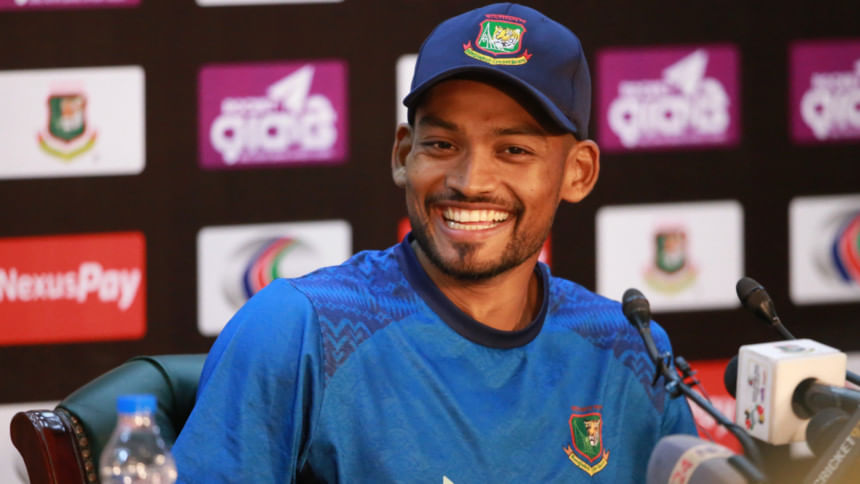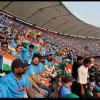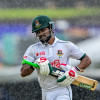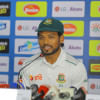Constant shuffling hurt the team, admits Shanto

In a World Cup where Bangladesh's performances were mostly predictably poor, their batting order remained unpredictable throughout the tournament.
As the number of defeats kept piling on, captain Shakib Al Hasan and coach Chandika Hathurusingha would get asked in every media interaction if not having a set batting order was unsettling the players.
And their answer would always be a defiant no.
But yesterday, after the team ended their abysmal World Cup campaign with an eight-wicket defeat to Australia in Pune, stand-in captain Najmul Hossain Shanto finally relented and admitted that perhaps the constant experiments with the batting order adversely affected the team.
"To be honest, it is better if we don't [shuffle the batting order]," Shanto said during the post-match press conference yesterday.
Bangladesh had begun the World Cup with a comfortable six-wicket win over Afghanistan in Dharamshala.
In that match, promoting Mehedi Hasan Miraz to number three after a wicket fell inside five overs to handle Afghan spinner Mujeeb Ur Rahman paid dividends as he hit a half-century which helped Bangladesh complete an easy chase.
After that match, the management constantly shifted Miraz's batting position in the order, which forced the other batters bat out of position.
Other than openers Liton Das and Tanzid Hasan, every batter - Shanto, Towhid Hridoy, Mahmudullah, Shakib Al Hasan and Mushfiqur Rahim - batted in different positions throughout the World Cup.
Former players and analysts have blamed this constant shuffling and experimentation by the team management for hampering the confidence of the batters, which is evident from their performances in the competition.
After continuous criticism, the team management finally opted for a more conventional batting order in their last two matches in the tournament against Sri Lanka and Australia.
Against Sri Lanka, they ended their six-match losing streak by chasing down 280 and while they lost to Australia, they at least managed to post their highest score in the tournament, 306 for 8 in 50 overs.
Although Shanto initially tried to justify the shuffling, saying there were no complaints from any of the batters, eventually he accepted.
"But sometimes you have to do it against certain teams, according to their strengths. But I think the less we do it, [the better]. There was a lot of [shuffling] in the World Cup but it was done with a positive intent. If we don't do it at all, even better," Shanto said.
Shanto, who scored two fifties in the World Cup, also raised the importance of having sporting pitches at home in order to improve Bangladesh's performance in the white ball formats.
"We are not a poor batting unit. We came here well prepared, but we didn't get the result. We want sporting wickets in home ODIs and T20Is. Bowlers will learn how to defend 300 runs on a good wicket. I am sure the board is thinking about these types of wickets."

 For all latest news, follow The Daily Star's Google News channel.
For all latest news, follow The Daily Star's Google News channel. 









Comments